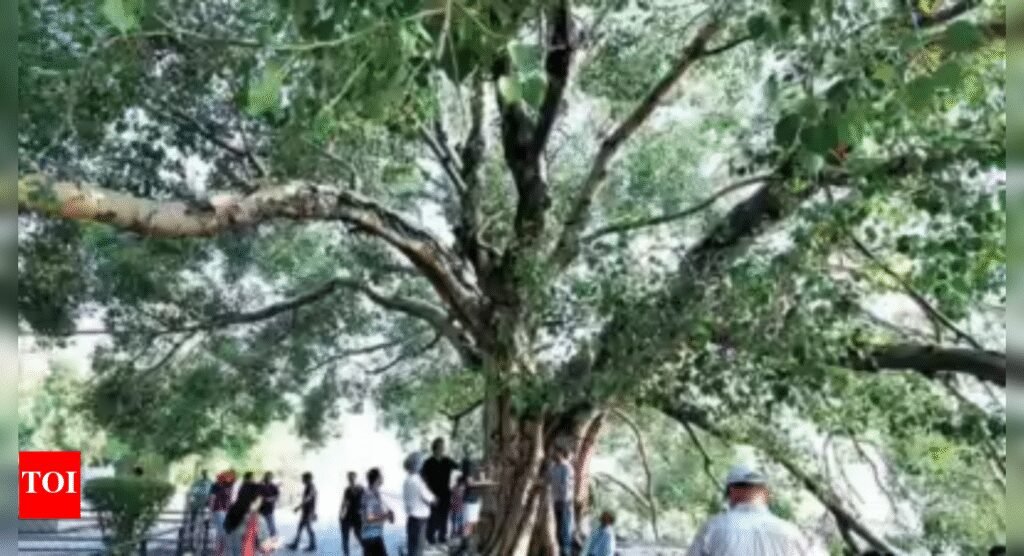BATHINDA: With decrease of over 1.4% geographical area under forest and tree cover in Punjab in the last over two decades, the voices for corrective measures have started rising to arrest the trend rather to increase the forest and tree cover in the state, which is one of the lowest in the country on the count. Pro-environment organisations ‘Vatrukh foundation’ and ‘Water warriors Punjab’ have launched an email campaign urging Punjab government to enact an independent tree preservation act for Punjab. Emails have been sent to the Chief Minister, Assembly Speaker, Leader of opposition and the MLAs. The organisations have demanded to incorporate various sections in the proposed act including appointment of tree officer/s, restrictions on felling of trees, planting and preservation, penalty and compensation and provisions to revise the sections in the act. The organisations have demanded to promote large-scale tree plantation and maintenance, especially in urban and newly developed areas; Protect heritage and ecologically important trees; Establish tree protection committees for participatory governance. “We support environmental conservation efforts and sustainable urban development. Roadside plantation obligation with developers of highways or canals must plant and maintain a 1:15 tree ratio along project lengths (15 trees per tree felled), with a 5-year survival guarantee in the proposed act”, said Vatrukh foundation representative Samita Kaur and Manjit Singh from Water Warriors. They also demanded promotion of Agroforestry expansion by integrating trees with farming. Promote tree plantations on agricultural lands, Agroforestry promoting trees of high commercial value like Aquiliaria trees, Sandalwood plantation, Moringa Trees. Encourage fruit trees, timber species, and nitrogen-fixing trees. It also demanded sharing carbon credits with farmers adopting agroforestry. Sending monetary compensation of carbon credits directly to farmers’ bank accounts. Making enrollment easy to carbon credits. Formalize the carbon credit scheme with a state-level registry, ensuring farmers receive 80% of credit revenue directly, surpassing current voluntary models. Punjab has lost 1.13 percent of the geographical area under forest cover and 0.28 percent of the geographical area under tree cover in the last 22 years. The forest cover, which was 4.80 percent of the geographical area in 2001, decreased to 3.67% of the geographical area in 2023, while the tree cover, which was 3.20% of the geographical area in 2001, decreased to 2.92% of the geographical area in 2023. Combined together the forest and tree cover deceased to 6.59% of the geographical area in 2023 from 8% in 2001 as per the Indian state of forest report (ISFR 2023). Punjab’ Principal Chief Conservator of forests (HoFF) Dharminder Sharma recently laid out the data in an affidavit before the National Green Tribunal (NGT) in a petition arising out of a news item ‘India lost 2.33 million hectares of tree cover since 2000: Global Forest Watch’ appeared in a section of press on April 13, 2024. As per the affidavit, the forest cover was recorded as 2432 square km in 2001 which was recorded at 1846.09 sq km in 2023 while tree cover which was recorded at 1634 sq km in 2001 was recorded at 1475.15 sq km in 2023. The decrease was recorded as 1.13 per centage of the geographical area in forest cover and 0.28 per cent in tree cover. In the meanwhile, pro-environment groups Public Action Committee (PAC) Mattewara Jungles, River Satluj and Buddha Darya, have decided to devote a week from July 1 to 7 for plantation drive turning it into ‘People’s movement for a greener, sustainable Punjab’. The event has been called a movement to reawaken bonds with nature, renew the vow to protect Punjab’s ecological heritage with heart, hands, and hope with this not just about planting trees it is about cultivating a sustainable future for all. The aim has been put at plantation of 3,000–5,000 native saplings over 7 days, rejuvenation of the eco-sensitive floodplains of river Satluj, conservation of biodiversity and promotion of eco-tourism, awareness campaigns to ignite ecological consciousness among youth community-based responsibility for climate and environmental action, said PAC member Col (retd) CM Lakhanpal. He added the PAC is collaborating with government departments, panchayats and civil society as meetings have been held with DFO and range officers, reconnaissance site surveys have been conducted with selection of native species, area clearing and pit digging, mass mobilization through social media and public outreach. The campaign will include NGOs and civil society groups, students from school, colleges, environment enthusiasts and volunteers with the hope that every stakeholder to plant at least 100 saplings to help build mini forests for tomorrow.


